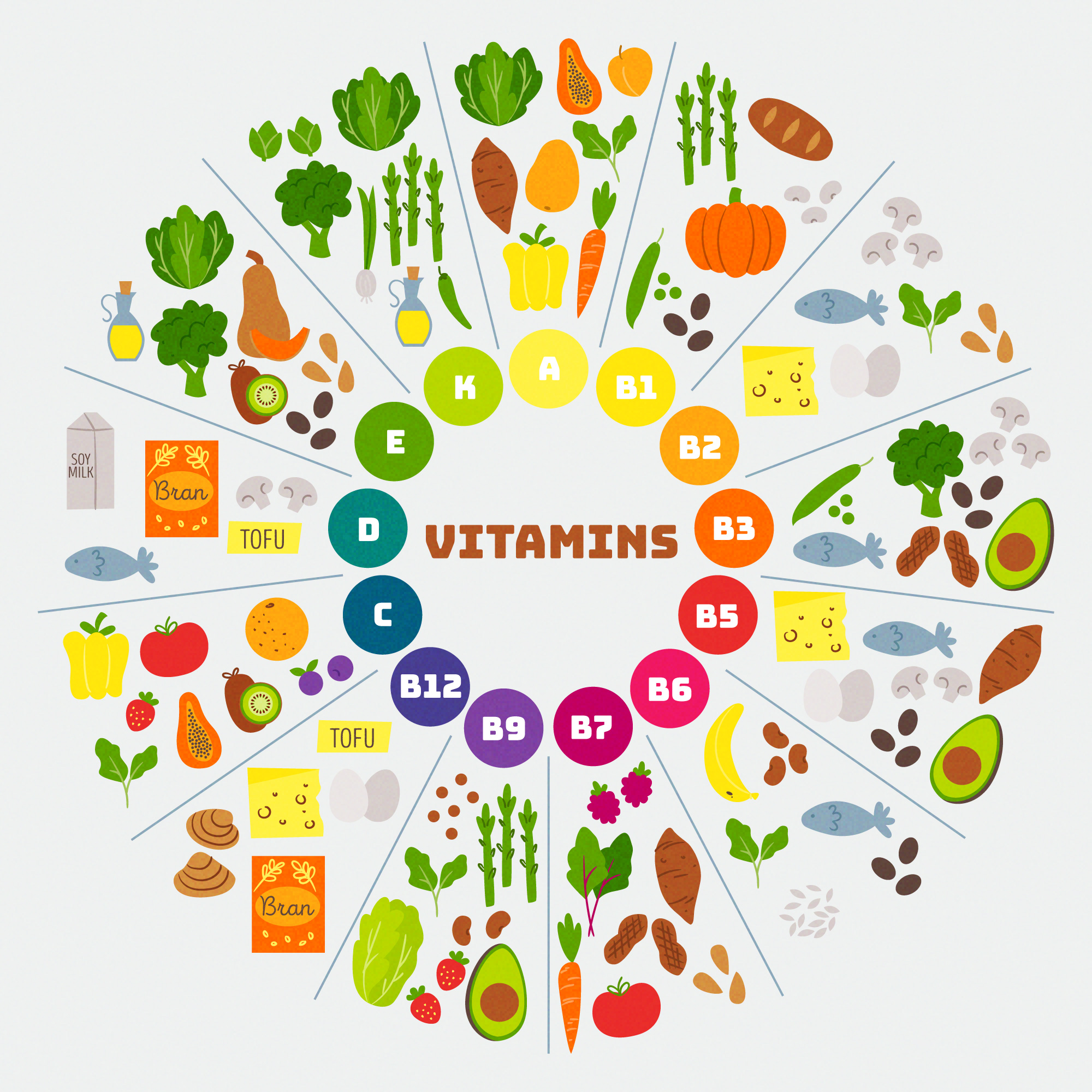Navigating Essential Vitamins: Comprehensive Cheatsheet Guide

Vitamins are organic compounds that are crucial for our body’s functioning. They play a wide array of roles, from supporting our immune system and skin health to ensuring proper metabolism and neurological function. Below is a concise cheatsheet outlining essential vitamins, their uses, and common food sources.
Vitamin A
– Uses: Supports vision and immune function.
– Food Sources: Carrots, sweet potatoes, and spinach.
Vitamin B1 (Thiamine)
– Uses: Helps convert food into energy.
– Food Sources: Whole grains, pork, and legumes.
Vitamin B2 (Riboflavin)
– Uses: Aids in energy production and skin health.
– Food Sources: Dairy, eggs, and green leafy vegetables.
Vitamin B3 (Niacin)
– Uses: Supports metabolism and nervous system health.
– Food Sources: Fish, beef, and whole grains.
Vitamin B5 (Pantothenic Acid)
– Uses: Important for hormone production and energy metabolism.
– Food Sources: Avocados, eggs, and whole grains.
Vitamin B6 (Pyridoxine)
– Uses: Helps with brain health and neurotransmitter production.
– Food Sources: Fish, bananas, and potatoes.
Vitamin B7 (Biotin)
– Uses: Supports healthy hair, skin, and nails.
– Food Sources: Eggs, nuts, and seeds.
Vitamin B9 (Folate)
– Uses: Crucial for cell division and proper fetal development.
– Food Sources: Leafy greens, legumes, and fortified foods.
Vitamin B12 (Cobalamin)
– Uses: Essential for red blood cell formation and neurological function.
– Food Sources: Meat, dairy, and fortified cereals.
Vitamin C
– Uses: Important for collagen production and immune function.
– Food Sources: Citrus fruits, strawberries, and bell peppers.
Vitamin D
– Uses: Crucial for bone health and calcium absorption.
– Food Sources: Fatty fish, fortified milk, and sun exposure.
Vitamin E
– Uses: Acts as an antioxidant and supports skin health.
– Food Sources: Nuts, seeds, and green leafy vegetables.
Vitamin K
– Uses: Essential for blood clotting and bone health.
– Food Sources: Leafy greens, broccoli, and Brussels sprouts.
Vitamin P (Bioflavonoids)
– Uses: Supports blood vessel health and enhances vitamin C absorption.
– Food Sources: Various fruits, vegetables, and teas.
Conclusion
Incorporating a balanced diet rich in these essential vitamins can greatly contribute to overall health and well-being. Make sure to include a variety of the food sources mentioned to ensure you’re meeting your nutritional needs.
(Note: This article briefly overviews the subject and does not provide medical advice. If you need more information about essential vitamins, consult a qualified professional.)



